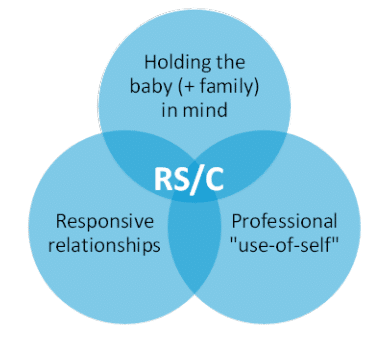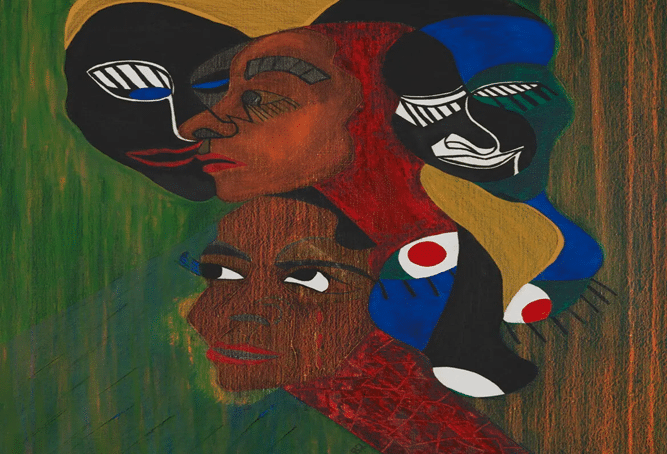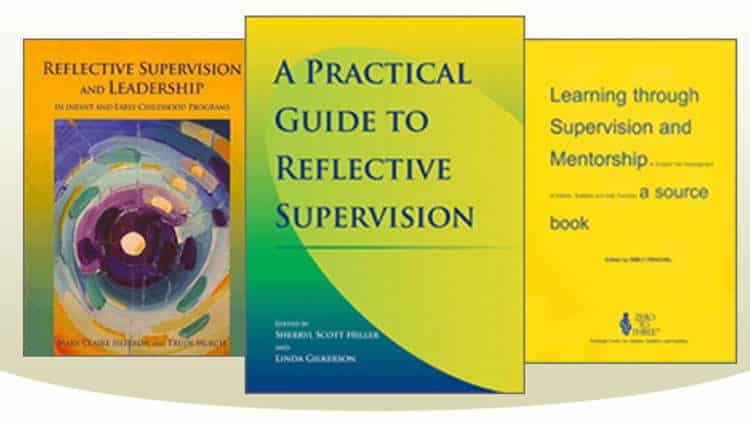
Unveiling the Mask: The Journey of Authenticity, Healing, and Reflective Supervision for BIPOC Leaders


Abstract
BIPOC (Black, Indigenous, and People of Color) leaders in relationship-based roles often face the challenge of balancing authenticity with societal expectations in professional environments. This article explores how diversity-informed reflective supervision can serve as a transformative practice for BIPOC leaders, fostering authenticity, resilience, and personal growth. Reflective practice provides a supportive space for examining the complex dynamics of cultural identity, internalized trauma, and the pressures of tokenism.
It emphasizes cultural humility, empathy, and self-awareness, promoting healing through a social justice lens that considers systemic influences and personal experiences. Each section of the article includes related Reflective Questions for the reader to consider. By cultivating reflective practices, BIPOC leaders can embark on a path toward liberation and authentic leadership, fostering inclusive environments that strengthen community connections.
Diversity-informed reflective practice is more than a professional development tool—it is a process of profound personal and professional empowerment.
What is reflective supervision and consultation (RS/C)?

Reflective practice is a tool that invites us to pause and slow down to become aware of thoughts, feelings and reactions that arise in everyday interactions.
This article presents concrete examples of identified opportunities to advance from our “Beyond Reflection” discussion paper:
- #3 Diversify cultural and racial representation, contributions, and leadership.
- #4 Recognize transparent attention to equity, power, and privilege as an essential RS/C element.]
BIPOC (Black, Indigenous, and People of Color) leaders in relationship-based roles often face the challenge of balancing authenticity with societal expectations in professional environments. This article explores how diversity-informed reflective supervision can serve as a transformative practice for BIPOC leaders, fostering authenticity, resilience, and personal growth. Reflective practice provides a supportive space for examining the complex dynamics of cultural identity, internalized trauma, and the pressures of tokenism.
It emphasizes cultural humility, empathy, and self-awareness, promoting healing through a social justice lens that considers systemic influences and personal experiences. Each section of the article includes related Reflective Questions for the reader to consider. By cultivating reflective practices, BIPOC leaders can embark on a path toward liberation and authentic leadership, fostering inclusive environments that strengthen community connections.
Embracing Authentic Leadership
For BIPOC leaders in relationship-based work, the journey toward authenticity and self-awareness requires more than technical expertise; it demands an understanding of personal identity, an openness to vulnerability, and the resilience to navigate complex environments.
Leaders from marginalized backgrounds frequently feel the pressure to “wear the mask” in predominantly white professional spaces—a protective adaptation necessary to meet the implicit biases and expectations embedded in these environments (Sue & Sue, 2016). While this strategy may offer temporary upward mobility and acceptance, it often leads to emotional detachment and disconnection from one’s true self. The act of masking is emotionally taxing, as it forces BIPOC leaders to constantly adjust and monitor their behavior, hiding aspects of their identities that may be perceived as incompatible with dominant organizational norms (Gilkerson, 2004).
Reflective supervision, particularly when grounded in a diversity-informed framework, offers a path to unveiling this mask and embracing authentic leadership.
Dr. Harleen Hutchinson
According to Norona and Acker (2012), reflective supervision extends beyond professional development, providing a “holding space” where leaders can safely explore their identities, confront internalized biases, and address the emotional toll of their roles. In these spaces, BIPOC leaders are encouraged to examine how societal expectations influence their behavior and self-perception, fostering greater cultural humility and self-compassion.
This self-exploration allows leaders to reconnect with the values and lived experiences that shape their professional identities, enhance their reflective capacity and ultimately allow for more authentic and compassionate leadership. The impact of diversity-informed reflective practice extends beyond individual growth; it fosters a deeper understanding of the systemic factors that influence professional relationships and decision-making. As Brene Brown (2012) asserts, “Owning our story and loving ourselves through that process is the bravest thing that we’ll ever do” (p. 41).
This article examines how reflective supervision equips BIPOC leaders with the tools to break free from limiting narratives, such as tokenism and internalized trauma, and redefine success on their own terms. By engaging in reflective practice, BIPOC leaders can cultivate resilience, foster cultural curiosity, and develop a shared commitment to equity, ultimately transforming their personal and professional lives.
The Mask of Success and the Struggle for Authenticity
For many BIPOC leaders, the experience of “wearing the mask” is an all-too-familiar and burdensome reality, particularly within predominantly white or culturally homogeneous professional environments.

Often, this mask becomes a necessary protective mechanism, enabling leaders to navigate the implicit biases, microaggressions, and cultural misunderstandings that pervade these settings. While wearing the mask can facilitate short-term success and social acceptance, its long-term effects on mental health and identity are frequently detrimental. Gilkerson (2004) describes this phenomenon as ”, in which BIPOC leaders experience a profound emotional dissonance as they conceal significant parts of their identity to fit into a dominant culture that may neither recognize nor appreciate their lived experiences. This internal conflict creates persistent strain, slowly eroding self-esteem and leaving leaders feeling isolated, misunderstood, and disconnected from their true selves.
Diversity-informed reflective supervision provides an essential space for BIPOC leaders to examine the emotional toll of masking on their personal and professional identities. In these reflective spaces, leaders are encouraged to confront the challenges of masking and explore the pressures they face to conform to professional expectations that can undermine authenticity.
Norona (2012) argues that authenticity should not be a privilege reserved for those who fit the dominant cultural mold but as a core component of effective leadership and self-acceptance. By offering BIPOC leaders a supportive environment in which they can “unmask” and share their genuine selves, reflective supervision fosters greater self-acceptance. Leaders are empowered to integrate their full identities—including their lived experiences and cultural perspectives—into their professional roles, enhancing their authenticity and sense of belonging.
For BIPOC leaders, this process of unmasking in reflective supervision can be transformative, shifting them from mere survival to genuine thriving in professional spaces. By cultivating an environment where leaders feel safe expressing vulnerability, reflective supervision promotes resilience, empathy, and greater emotional connection with others.
Shahmoon Shanok (2016) emphasizes that authenticity is vital in relationship-based work, as it forms the foundation for trust and rapport. Through diversity-informed reflective practice, BIPOC leaders develop the confidence to bring their full selves to their work, strengthen their reflective capacity, and build more impactful, meaningful, and genuine connections with clients, colleagues, and communities.
Reflective Questions
- Have you found yourself masking aspects of your identity or experiences in navigating your professional environment?If so, in what ways?
- What steps can you take to reconnect with your authentic self while leading in professional settings?

Confronting the “Not Good Enough” Narrative and Internalized Trauma
For BIPOC leaders, the narrative that they must “work twice as hard to be considered half as good” fosters a deeply ingrained sense of inadequacy that often manifests as internalized trauma (Sue & Sue, 2016).

The relentless pressure to meet or exceed both self-imposed and societal expectations often drives BIPOC leaders toward perfectionism and an unyielding pursuit of external validation. Over time, this constant striving can lead to exhaustion, burnout, and a diminished sense of self-worth. Gilkerson (2004) explains that such internalized trauma profoundly affects a leader’s self-perception, limiting their ability to fully engage in their work. When BIPOC leaders internalize the “not good enough” narrative, it erodes their confidence and prevents them from embracing their true capabilities and their authentic selves, ultimately hindering their growth and fulfillment in their roles.
Reflective supervision offers a valuable space for BIPOC leaders to challenge and dismantle the beliefs tied to the “not good enough” narrative. Norona (2012) notes that reflective practice enables leaders to confront societal expectations and re-evaluate the metrics by which they measure their worth.
By offering a supportive environment, reflective supervision encourages BIPOC leaders to explore the personal and cultural experiences that shape their identities, helping them recognize their inherent value beyond external achievements or validation. This process fosters healing and self-acceptance as leaders learn to see themselves as worthy, regardless of societal standards. In a diversity-informed reflective space, BIPOC leaders are empowered to redefine success, based on their values, focusing on personal growth, resilience, and authenticity rather than seeking the approval of others.
By promoting self-acceptance, reflective supervision enables BIPOC leaders to move from a survival mindset to one of thriving. This shift allows leaders to unlearn perfectionism, embrace their unique strengths, and foster a healthier relationship with themselves and their work.
Through reflective practice, BIPOC leaders begin to view their identities as sources of strength, affirming their contributions and cultivating confidence. Over time, this new perspective not only enhances personal well-being but also strengthens their ability to make impactful contributions in their professional spaces. Reflective supervision becomes a transformative tool, empowering BIPOC leaders to embrace their inherent worth and lead with authenticity and self-assurance (Stroud, 2018).
Reflective Questions
- Has the “not good enough” narrative shown up in your life? If so, how and what are some strategies you’ve employed to counteract it?
- In what ways can you begin to acknowledge and celebrate your inherent worth beyond external validation?
Through reflective practice, BIPOC leaders begin to view their identities as sources of strength, affirming their contributions and cultivating confidence.
Dr. Harleen Hutchinson
Social Justice Reflective Practice as a Pathway to Healing and Liberation
For BIPOC leaders, engaging in reflective practice through a social justice lens offers a powerful way to address trauma, systemic inequities, and the complexities of social positionality.

In predominantly white professional environments, the pressure to “wear the mask” can create discomfort and alienation, distancing BIPOC leaders from their authentic selves as they navigate implicit biases and societal expectations (Sue & Sue, 2016).
This ongoing adaptation, while often necessary for acceptance and survival, takes an emotional toll and reinforces internalized stress, self-doubt, and isolation. However, social justice-informed reflective practice provides an intentional space where leaders can confront and process these challenges and acknowledge the impact of systemic inequities on their experiences and well-being. Norona and Acker (2012) describe reflective practice as a “holding space” that allows BIPOC leaders to openly explore the effects of societal bias, enabling them to lean into vulnerability and experience healing in a supportive environment.
Social justice reflective supervision empowers BIPOC leaders to actively engage with their social positionality and examine how identity, power, and privilege intersect within their work and influence their roles. By cultivating an equity-centered perspective, BIPOC leaders are better prepared to advocate for systemic change and implement inclusive practices within their organizations.
This approach promotes both personal growth and institutional impact, as leaders learn to navigate complex dynamics without sacrificing authenticity. Brené Brown (2012) underscores this journey, asserting that “healing is an act of revolution” (p. 49). For BIPOC leaders, social justice-informed reflective supervision becomes a revolutionary tool that helps them reclaim their voices, engage in self-advocacy, and lead with compassion, empathy, and genuine self-awareness.
Engaging in reflective practice with a social justice lens allows BIPOC leaders to cultivate resilience and create a pathway to liberation, both individually and collectively. This approach fosters self-compassion and belonging while reinforcing a sense of purpose and alignment with one’s values.
Through this form of reflective supervision, BIPOC leaders can make impactful, equity-centered contributions to their professional and community spaces, ultimately transforming their organizations and creating more inclusive environments. Reflective supervision grounded in social justice becomes not just a tool for professional development but a profound journey toward healing, liberation, and authentic leadership. It encourages BIPOC leaders to embrace their identities, build resilience against systemic forces, and champion change for future generations.
Reflective Questions
- Has your social positionality influenced your experience of discomfort and masking in professional spaces? If so, how?
- In what ways can social justice reflective practice helps you address this discomfort? What intentional steps can you take within reflective practice to integrate a social justice perspective that promotes healing and liberation?
Let us empower your team with group training on the IECMH Guiding Principles.
Conclusion: The Ongoing Journey Toward Healing and Authentic Leadership
Unveiling the mask to embrace authentic leadership is a courageous, lifelong journey for BIPOC professionals, demanding intentional practice, support, and encouragement.
Reflective supervision, when grounded in cultural humility and a commitment to addressing complex issues, offers a brave, supportive space to explore and confront the layers of identity, tokenism, and internalized trauma that many BIPOC leaders experience.
In diversity-informed reflective supervision, BIPOC leaders are invited to peel back the layers of their professional and personal masks, gaining the resilience to foster self-compassion, embrace authenticity, and build confidence in their leadership. This space allows leaders to confront and transform limiting narratives, replacing them with a grounded sense of purpose and equity-centered contributions.
As Barbara Stroud (2018) reminds us, “Healing is an act of revolution.” This revolutionary act of unveiling the mask enables BIPOC professionals to shape environments that honor their unique values and lived experiences. Through the journey of reflective supervision, BIPOC leaders cultivate the strength to lead with integrity, compassion, and a steadfast dedication to social justice, setting a foundation for inclusive and transformative change in their fields.

Dr. Harleen Hutchinson, IMH-E®, is a leader in pediatric behavioral and early relational health. As Executive Director of The Journey Institute, Inc., and consultant faculty at ZERO TO THREE, she works to reduce the impact of toxic stress on children by promoting developmentally and culturally appropriate care. She serves on the board of the National Alliance for the Advancement of Infant Mental Health and as associate editor for the World Association for Infant Mental Health, advocating for diverse voices in the field. Dr. Hutchinson, recipient of the 2024 William Schafer Award, is also President of the Florida Association for Infant Mental Health (FAIMH), leading workforce development initiatives, and an adjunct professor at Barry University. Her expertise includes perinatal mood disorders, maternal mental health, and pediatric trauma, guided by her principle: “Planting seeds, one relationship at a time.”
Related Resources

